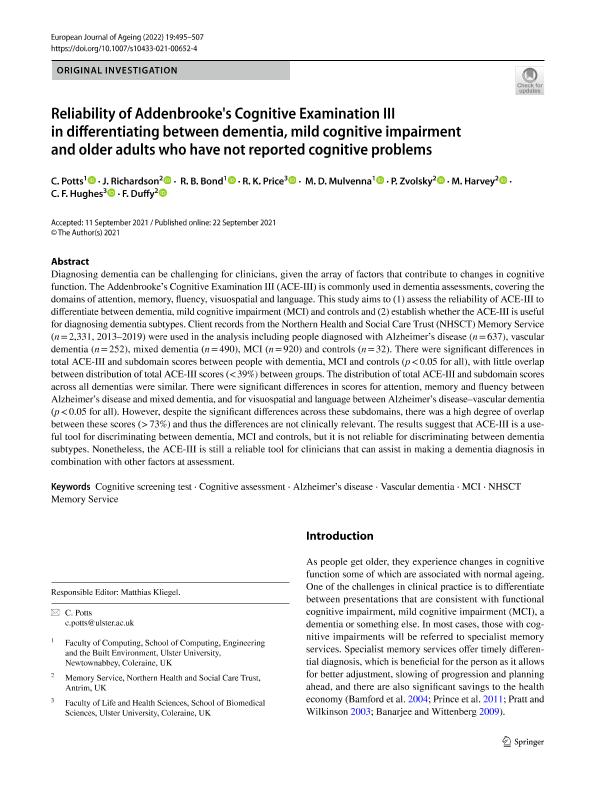Related records: En: European Journal of Ageing : social, behavioural and health perspectives. - Cham, Switzerland [etc.] : Springer International Publishing AG, 2021-. - 05/09/2022 Volumen 19 Número 3 - 2022 , p. 495-507Materia / lugar / evento: Personas mayores Deterioro cognitivo Other categories: 931.2
Reliability of Addenbrooke's Cognitive Examination III in differentiating between dementia, mild cognitive impairment and older adults who have not reported cognitive problems
Related records: En: European Journal of Ageing : social, behavioural and health perspectives. - Cham, Switzerland [etc.] : Springer International Publishing AG, 2021-. - 05/09/2022 Volumen 19 Número 3 - 2022 , p. 495-507Materia / lugar / evento: Personas mayores Deterioro cognitivo Other categories: 931.2


